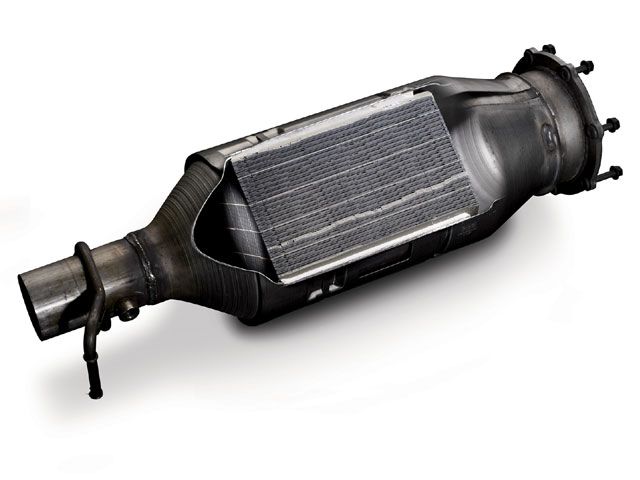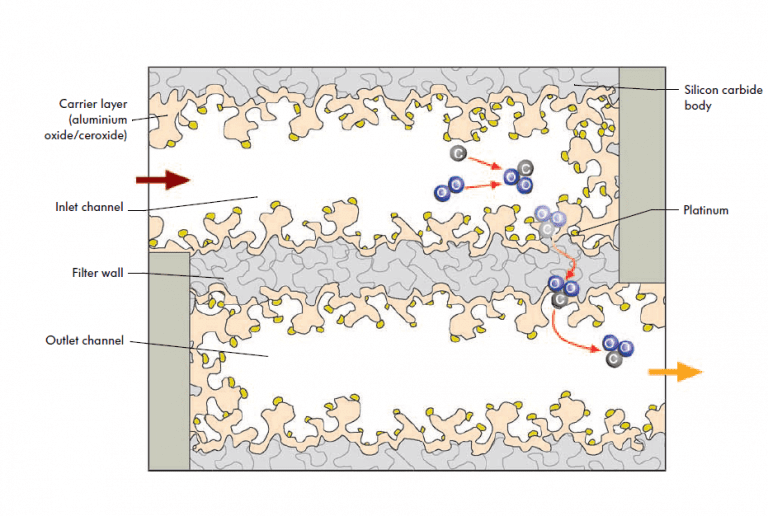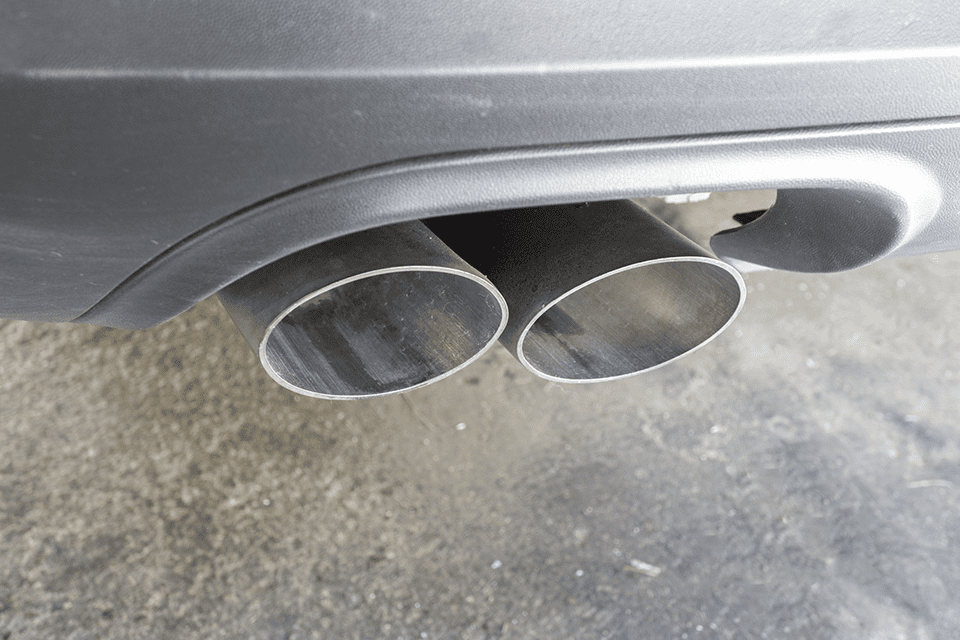5 Facts about your DPF
5 facts about your DPF (Diesel Particulate Filter) that every diesel driver should know.
5 Facts about your DPF

1. What is a diesel particulate filter?
A diesel particulate filter (DPF) is a device fitted to a diesel vehicle which filters particulate matter (PM) from exhaust gases. It does this by trapping solid particles while letting the gases flow out. This type of filter has been in use for over 20 years, and many variants exist. These filters enable reductions in emissions which means diesel vehicles are able to meet increasingly stringent European emission standards, as well as improve air quality and thereby health standards.
2. What is Particulate Matter (PM)?
PM is made up of a complex mixture of solid and liquid particles, including carbon, complex organic chemicals, sulphate, nitrates, ammonium, sodium chloride, mineral dust, water and a series of metals, which are suspended in the air.
PM10 refers to particles with a diameter smaller than 10μm (1μm is 1 millionth of a meter) The diameter of a single human hair ranges from approximately 17 to 180 μm
They may be produced directly from a source such as an engine – or formed from reactions between other pollutants (eg NO₂, SO₂, NH₃) in the air (secondary PM).
3. What is Regeneration?
DPFs need to be emptied of trapped particulate matter regularly. This is done by a process called regeneration, which involves burning the soot to gas at a very high temperature, leaving behind only a very small residue (ash). Regeneration, If not carried out properly, can lead to a build-up of soot which can affect performance and ultimately lead to expensive repair costs. This has led to some diesel vehicle owners removing their DPFs. However, DPF removal has both legal and social implications.
4. DPF removal & the MOT Test
From February 2014 the inspection of the exhaust system carried out during the MOT test has included a check for the presence of a DPF. A missing DPF, where one was fitted when the vehicle was built, will result in an MOT failure.
A vehicle might still pass the MOT visible smoke emissions test, which is primarily intended to identify vehicles that are in a very poor state of repair, whilst emitting illegal and harmful levels of fine exhaust particulate.
It is an offence under the Road vehicles (construction and use) regulations (Regulation 61a(3)) to use a vehicle which has been modified in such a way that it no longer complies with the air pollutant emissions standards it was designed to meet. Removal of a DPF will almost invariably contravene these requirements, making the vehicle illegal for road use. The potential penalties for failing to comply with Regulation 61a are fines of up to £1,000 for a car or £2,500 for a light goods vehicle.
The way that the MOT test works in England, Scotland and Wales changed on Sunday 20 May 2018. The changes affect cars, vans, motorcycles and other light passenger vehicles.
There are now stricter limits for emissions from diesel cars with a diesel particulate filter (DPF).
Your vehicle will get a major fault if the MOT tester:
- can see smoke of any colour coming from the exhaust
- finds evidence that the DPF has been tampered with
5. Why is the DPF so Important?
Air pollution causes an estimated 29,000 early deaths in the UK, and has annual health costs of roughly £15 billion. The health effects of PM are more significant than those of other air pollutants. Chronic exposure contributes to the risk of developing cardiovascular diseases and lung cancer.
Current evidence suggests that there is no ‘safe’ limit for exposure to fine particulate matter (PM10 and smaller). The Report of the Committee on the Medical Effects of Air Pollutants (COMEAP) from 2008 concluded that, although there had been improvements in pollutant levels, the average reduction in life expectancy as a result of airborne particulate matter across the population was 6 months. The World Health Organisation classifies diesel emissions as a class 1 carcinogenic the same risk category as asbestos.
Furthermore, PM has negative environmental impacts. It comprises nitrates, sulphates and ammonium which are the main drivers for acidification and eutrophication – 2 extremely damaging processes to natural ecosystems, which can cause habitat loss and affect biodiversity. PM also contains black carbon, a known contributor to global warming. DPFs are essential in reducing current PM emissions in order to prevent these processes from occurring.
Contact Us »Our Location
Find Us
31 Sturmi Way
Village Farm Industrial Estate
Pyle, Bridgend
Mid Glamorgan
CF33 6BZ
01656 670741
Opening Times
| Monday | 09:00 - 17:30 |
|---|---|
| Tuesday | 09:00 - 17:30 |
| Wednesday | 09:00 - 17:30 |
| Thursday | 09:00 - 17:30 |
| Friday | 09:00 - 17:30 |
| Saturday | Closed |
| Sunday | Closed |



Car Repairs & Services
- Airbag Repairs
- Auto Electrics
- Brake Disc Skimming
- Cambelts
- Campervan Repairs & Servicing
- Car Air Conditioning
- Car Batteries
- Car Brakes
- Car Exhausts
- Car Modifications
- Car Repairs
- Car Servicing
- Car Tyres
- Clutch Replacement
- Diesel Particulate Filter Cleaning
- Diesel Performance ECU Tuning
- Dyno Services
- ECU Remapping
- Electric Car Repairs & Servicing
- Engine Diagnostics
- Engine Rebuilds
- Engine Remapping
- Engine Tuning
- Hybrid Car Repairs & Servicing
- Milltek Car Exhausts
- Steering
- Suspension
- Wheel Alignment
- All Car Repairs & Services…
© GotBoost Racing - 2024










